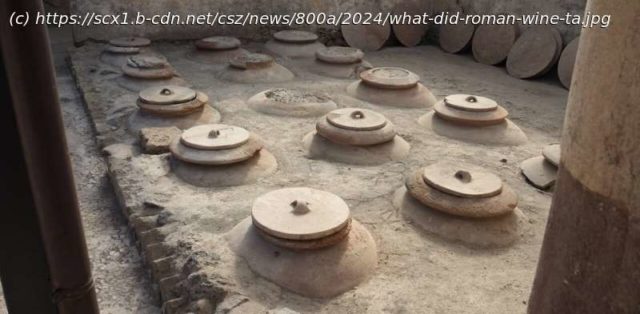From a modern, scientific perspective, the wine Romans drank is often seen as an inconsistent, poorly made and thoroughly unpleasant beverage. It is alleged that Roman winemakers had to mask their products’ flaws by adding spices, herbs and other ingredients to the freshly pressed grape juice, which is known as « must. »
From a modern, scientific perspective, the wine Romans drank is often seen as an inconsistent, poorly made and thoroughly unpleasant beverage. It is alleged that Roman winemakers had to mask their products’ flaws by adding spices, herbs and other ingredients to the freshly pressed grape juice, which is known as « must. »
However, our research has shown this may not have been the case: A recent study of earthenware vessels used in wine fermentation—both ancient and contemporary —has challenged traditional views on the taste and quality of Roman wine, some of which may even have rivaled the fine wines of today.
Many of the longstanding misconceptions surrounding Roman wine come from a lack of insight into one of the most characteristic features of Roman winemaking: fermentation in clay jars or dolia. Huge wine cellars filled with hundreds of these vessels have been found all over the Roman world, but until we began our study no one had looked closely at their role in ancient wine production.
In our research, we compared Roman dolia with traditional Georgian production vessels, called qvevri, which are still in use today. This traditional process was given protected status by UNESCO in 2013, and the similarities between Georgian and Roman winemaking procedures, along with archaeology and ancient texts, point to wines with comparable tastes and aromas. The results of our study were published in January 2024 in the journal Antiquity.
Home
United States
USA — IT What did Roman wine taste like? Much better than previously thought, according...






